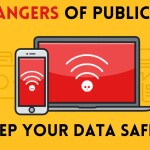Technical proficiency is no longer enough to succeed in the fast-paced, dynamic workplace of today. The dynamic nature of the workplace necessitates a broad skill set beyond subject-matter expertise and task-specific competence. Soft skills—also referred to as people or interpersonal skills—are essential for promoting productive teamwork, sparking creativity, and, eventually, realizing organizational success. In this post, we'll examine 11 essential soft skill examples that are necessary to succeed in the contemporary workplace and discuss why companies are starting to place a higher emphasis on them.
Understanding Soft Skills: What Are They?
Before diving into the essential soft skills, let's first clarify what exactly soft skills entail. Soft skills encompass a broad range of personal attributes and abilities that enable individuals to interact effectively with others in a professional setting. These skills are characterized by their intangible nature and are not easily quantifiable. However, they are essential for navigating complex interpersonal dynamics, building strong relationships, and achieving goals collaboratively.
1. Communication
Effective communication lies at the heart of successful interactions in the workplace. It involves not only the ability to articulate ideas clearly and persuasively but also to listen actively, understand others' perspectives, and provide constructive feedback. Strong communication skills enable individuals to build rapport, resolve conflicts, and foster a culture of open dialogue within teams and across organizational boundaries.
2. Leadership
Leadership encompasses the ability to inspire and influence others to achieve common goals. Effective leaders possess a clear vision, communicate it effectively, and empower team members to contribute their best efforts. They demonstrate integrity, empathy, and resilience, inspiring trust and confidence among their peers and fostering a culture of accountability and excellence.
3. Teamwork
Teamwork involves collaborating effectively with others to achieve shared objectives. It requires active participation, mutual respect, and a willingness to contribute to the collective success of the team. Individuals who excel at teamwork are adept at communicating, resolving conflicts, and leveraging diverse perspectives to drive innovation and achieve optimal outcomes.
4. Creativity
Creativity entails the ability to think outside the box, challenge assumptions, and generate innovative solutions to complex problems. It requires a curious and open-minded approach, as well as a willingness to experiment and take calculated risks. Creative individuals bring fresh perspectives and novel ideas to the table, driving innovation and fostering a culture of continuous improvement within organizations.
5. Time Management
Effective time management is essential for prioritizing tasks, organizing workflow, and maximizing productivity. It involves setting goals, allocating time efficiently, and avoiding distractions to ensure timely completion of projects and assignments. Individuals with strong time management skills are able to juggle multiple responsibilities effectively, meet deadlines consistently, and maintain a healthy work-life balance.
6. Adaptability
In today's rapidly changing business landscape, adaptability is a critical soft skill that enables individuals to thrive in dynamic environments. It involves embracing change, learning new skills, and adjusting strategies in response to evolving circumstances. Adaptable individuals are resilient, flexible, and proactive in navigating uncertainty and seizing opportunities for growth and development.
7. Problem-Solving
Problem-solving entails the ability to analyze complex issues, identify root causes, and develop creative solutions to overcome challenges. It involves critical thinking, analytical reasoning, and strategic decision-making to address obstacles and achieve desired outcomes. Individuals with strong problem-solving skills are resourceful, resilient, and proactive in tackling issues from multiple angles to find optimal solutions.
8. Work Ethic
A strong work ethic reflects an individual's commitment, reliability, and professionalism in the workplace. It involves demonstrating initiative, accountability, and dedication to delivering high-quality results consistently. Individuals with a strong work ethic are punctual, dependable, and willing to go above and beyond to meet expectations and contribute to the success of their team and organization.
9. Critical Thinking
Critical thinking enables individuals to evaluate information, analyze arguments, and make informed decisions based on evidence and logic. It involves questioning assumptions, considering alternative perspectives, and drawing well-reasoned conclusions to solve problems effectively. Critical thinkers are adept at synthesizing complex information, identifying patterns, and identifying opportunities for improvement.
10. Conflict Management
Conflict management involves navigating disagreements and disputes constructively to achieve mutually satisfactory resolutions. It requires effective communication, active listening, and empathy to understand the underlying concerns and interests of all parties involved. Individuals with strong conflict management skills are able to facilitate dialogue, negotiate compromises, and build consensus to resolve conflicts and maintain positive relationships.
11. Emotional Intelligence
Emotional intelligence refers to the ability to recognize, understand, and manage one's own emotions as well as those of others. It involves self-awareness, empathy, and social skills to navigate interpersonal dynamics effectively and build strong relationships. Individuals with high emotional intelligence are adept at regulating their emotions, demonstrating empathy, and fostering positive connections with others.
soft skills are indispensable for success in today's workplace, complementing technical expertise and knowledge to drive individual and organizational performance. From communication and leadership to teamwork and adaptability, mastering these essential soft skills is essential for thriving in the ever-evolving landscape of work. By honing these skills, individuals can enhance their effectiveness, build strong relationships, and achieve their professional goals with confidence and resilience. As employers increasingly recognize the value of soft skills in driving organizational success, investing in the development of these critical attributes has never been more important.








